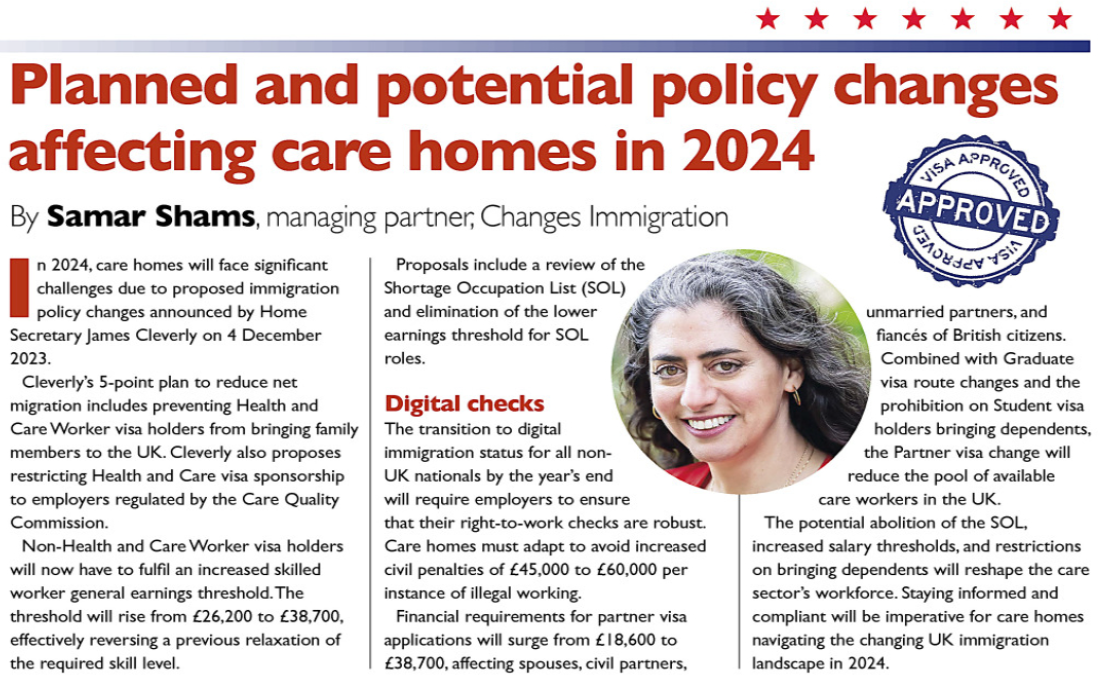Following their victory in the general election, the Labour Party is set to implement its election manifesto. With key sectors already impacted by recent increases in salary thresholds for sponsoring skilled workers, there is significant interest in understanding how the new Labour government might influence business immigration.
Key points
Shortage occupations and skills strategy
The Labour manifesto proposes empowering the Migration Advisory Committee (MAC) to make informed decisions, suggesting a return to evidence-based immigration policy. Labour plans to link the MAC with the Industrial Strategy Council and Skills England with the aim of identifying and addressing labour market shortages. This approach could mean significant changes for sectors that have traditionally relied on skilled migrant workers; however, it is unlikely to offer an immediate solution to the current recruitment challenges.
Skills England
Labour plans to establish Skills England, a new body that will collaborate with businesses, training providers, and unions to ensure the workforce meets the needs of the labour market. Skills England will work with the MAC to align immigration and training policies within a long-term industrial strategy. This collaboration aims to create a highly trained workforce capable of supporting Labour’s Industrial Strategy.
Enforcement on employers
The manifesto includes a warning that employers who abuse the visa system or breach employment law will be barred from hiring workers from abroad. This focus on stricter enforcement suggests that compliance with existing regulations will be a key priority under the Labour government. The sectors such as health and social care that heavily rely on overseas workers have already become a focus of Labour’s proposals. The government plans were confirmed in the King’s Speech on 17 July 2024, to introduce a new Fair Pay Agreement in the adult social care sector. Employers who do not comply with the agreements may face restrictions on their ability to recruit from overseas.
The government’s plans also include a proposal to ban employers who violate employment laws, such as failing to pay the national minimum wage, from hiring overseas workers.
Reducing net migration
One of the headline promises in the Labour manifesto is to reduce net migration. This commitment includes a pledge to reform the points-based immigration system, ensuring it is fair and properly managed. While the manifesto mentions reforming the current points-based system, Labour primarily proposes to increase training in skills shortage areas within the UK to reform the current immigration system.
What it means for your business
Despite the commitment to reform, the manifesto does not provide reassurances for businesses affected by the recent increases in salary thresholds for skilled workers, nor does it address the removal of the Shortage Occupation List, which previously allowed for discounted salary rates in certain sectors. This omission leaves businesses facing skills shortages without clear guidance on how to navigate the new immigration landscape.
Changes to immigration policies can have a significant impact on businesses that rely on hiring skilled workers from abroad. Employers must understand these potential changes to effectively plan and adapt their recruitment and training strategies. Ensuring compliance with new regulations and understanding the implications of policy shifts are crucial for maintaining a skilled and compliant workforce.
How we can help
Changes Immigration can help you navigate changes, maintain compliance and maintain the ability to sponsor workers in future.
Whether you need advice on checking right to work documents, support with sponsoring workers or an audit of your organisation’s immigration systems and processes, we can help ensure your organisation’s fitness for the future.
Please see the Immigration Compliance and Immigration Training pages on our website for further information or get in touch if you have a question for Changes Immigration.
Original publication date: 5 July 2024
Last updated: 25 July 2024








